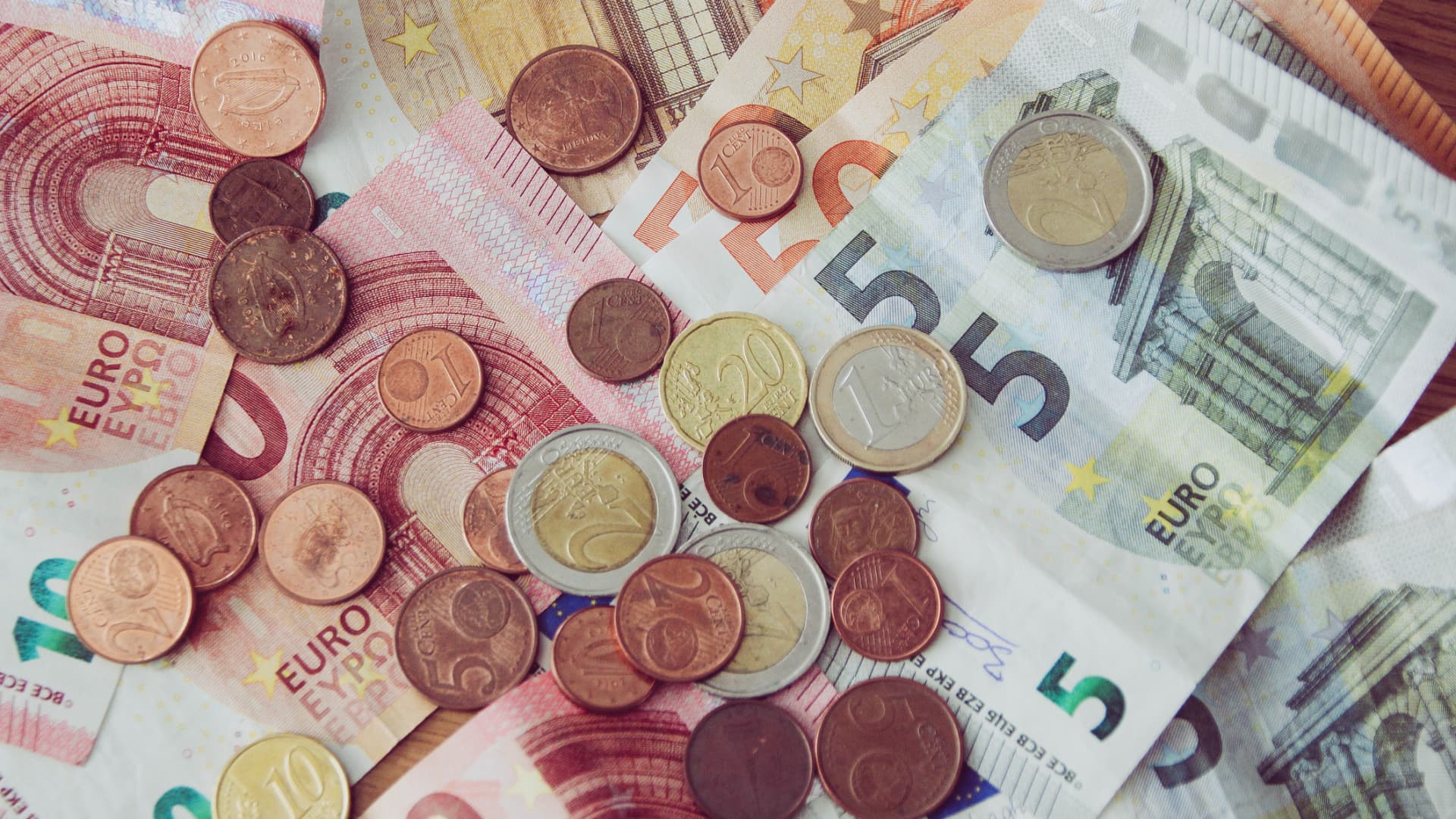
The euro traded almost 0.4% against the U.S. dollar to a level not seen since 2017. This after Gazprom decided to cut gas supplies to Poland and Bulgaria.
Kinga Krzeminska | Moment | Getty Images
The euro tumbled against the U.S. dollar Wednesday morning as investors grew increasingly concerned with energy supply and a potential recession in the region.
The euro dipped below $1.06 for the first time since 2017. It was almost 0.4% lower for the session before paring back some losses. The dollar has surged in recent weeks on its safe-haven appeal, as traders fear a growth slowdown or even a recession.
The market moves come as Russian state energy firm Gazprom decided to halt natural gas supplies to Poland and Bulgaria — two members of the European Union — with Moscow demanding payment in rubles. Tensions continue to rise between Moscow and the West following Russia’s unprovoked invasion of Ukraine on Feb. 24.
On Wednesday, European Commission President Ursula von der Leyen accused Russia of blackmail for its decision to cut supplies. The EU is highly dependent on Russian gas, with about 40% of its imports coming from the country, and there are wider concerns about a deeper economic slowdown in the region.
“It is a worrying sign,” James von Moltke, chief financial officer of Deutsche Bank, told CNBC Wednesday about Gazprom’s decision. “I don’t think it has an immediate impact on the economy … but it remains a risk for the overall outlook,” he added.
The International Monetary Fund projected earlier this month that the euro area will grow 2.8% this year. This is more than 1 percentage point lower than a previous forecast made before Russia invaded Ukraine.
“The main channel through which the war in Ukraine and sanctions on Russia affect the euro area economy is rising global energy prices and energy security. Because they are net energy importers, higher global prices represent a negative terms-of-trade shock for most European countries, translating to lower output and higher inflation,” the IMF said at the time.
Europe’s dependence on Russian energy is clearly a widespread economic concern. The EU has already decided to stop imports of Russian coal and it is discussing banning oil imports. However, natural gas, which is the commodity that the EU imports the most from Russia, is what investors are sharply focused on.
When asked if oil and natural gas sanctions on Russia could pose an economic risk for Europe, UBS CEO Ralph Hamers told CNBC Tuesday: “Of Russian oil not so much, of Russian gas that’s a different — a much bigger challenge and that is really because large part[s] of industries are dependent on gas as their base commodity to make their product … so that’s what could cause the second order effect, specifically in the European economy.”




